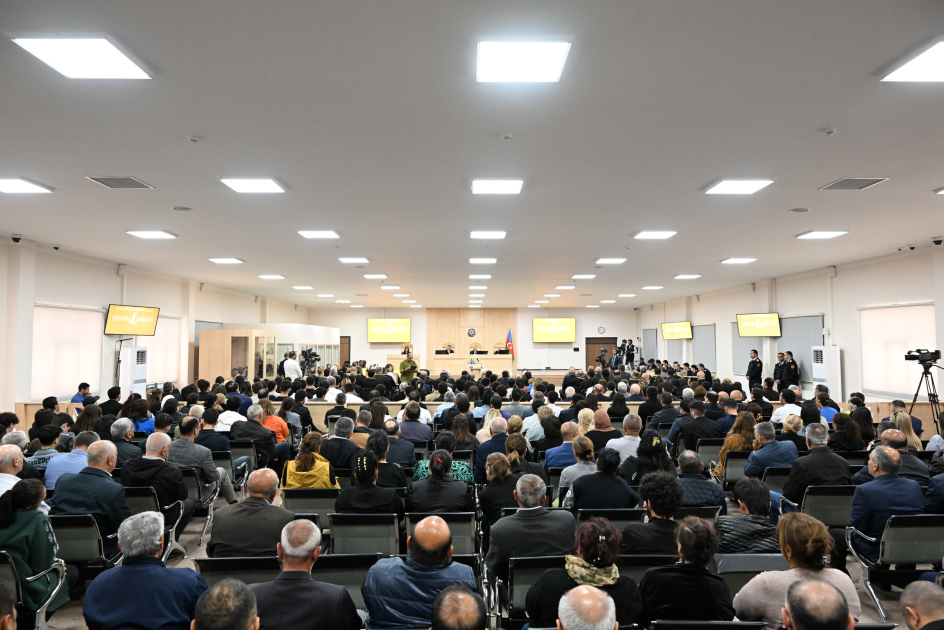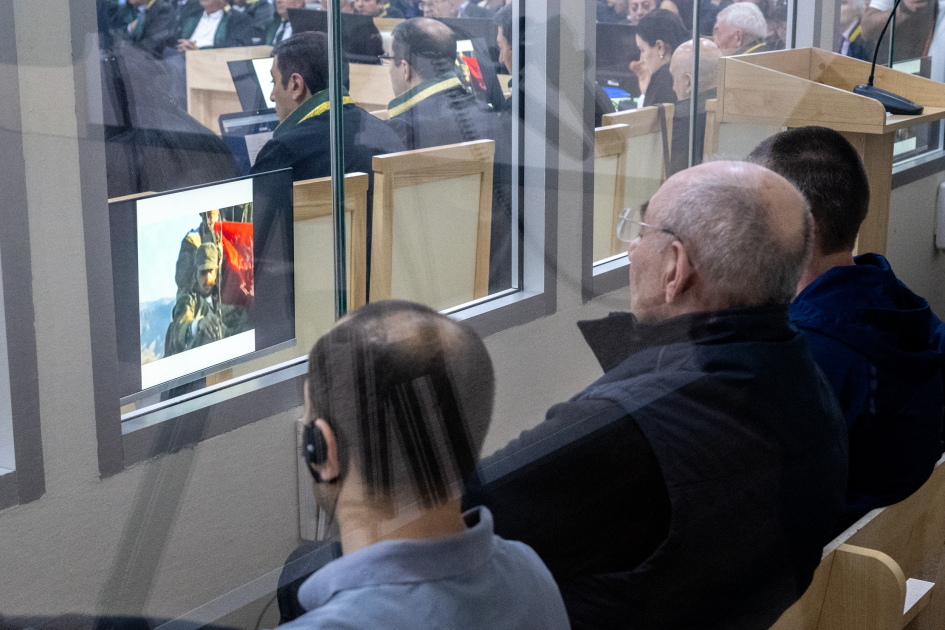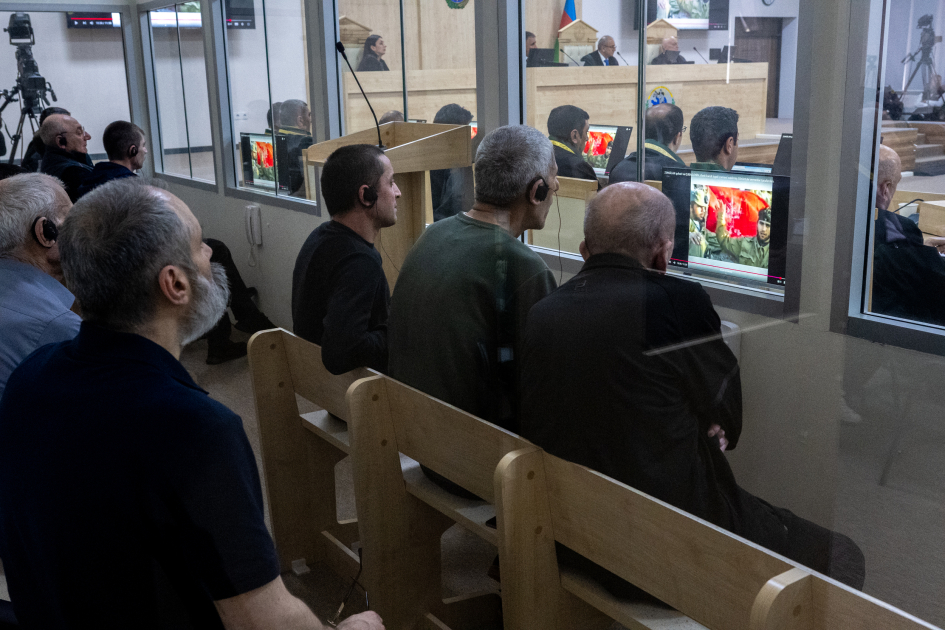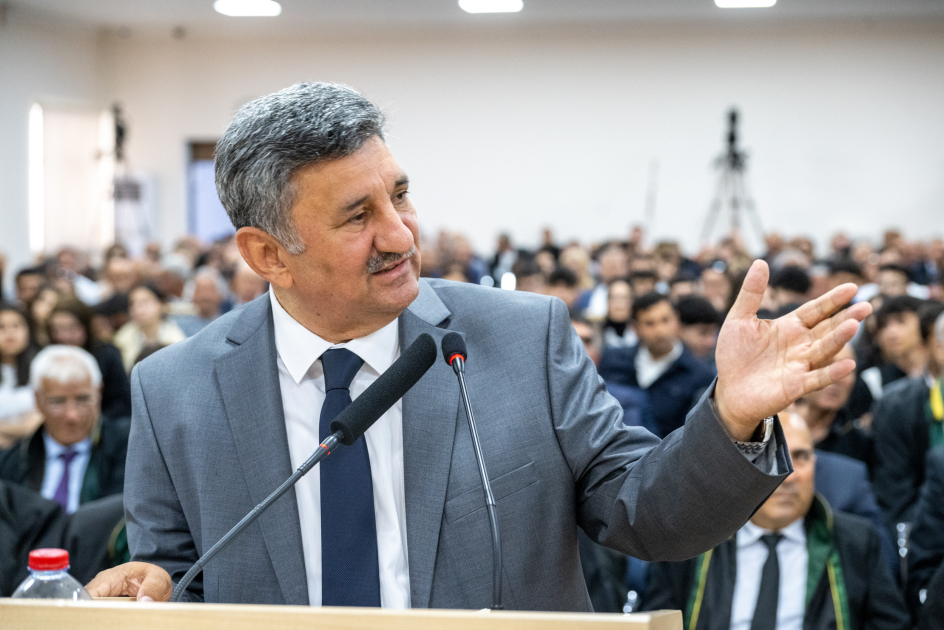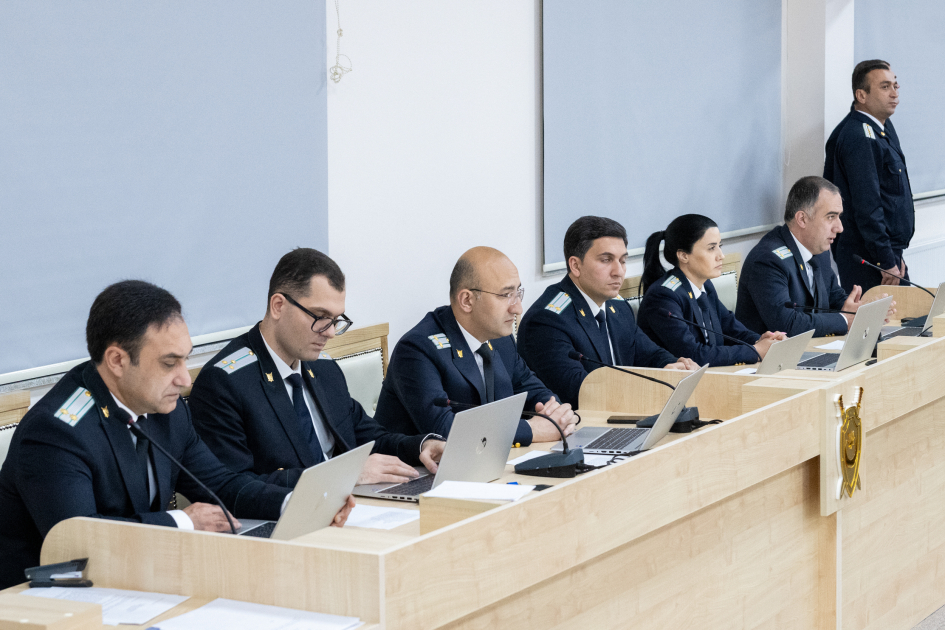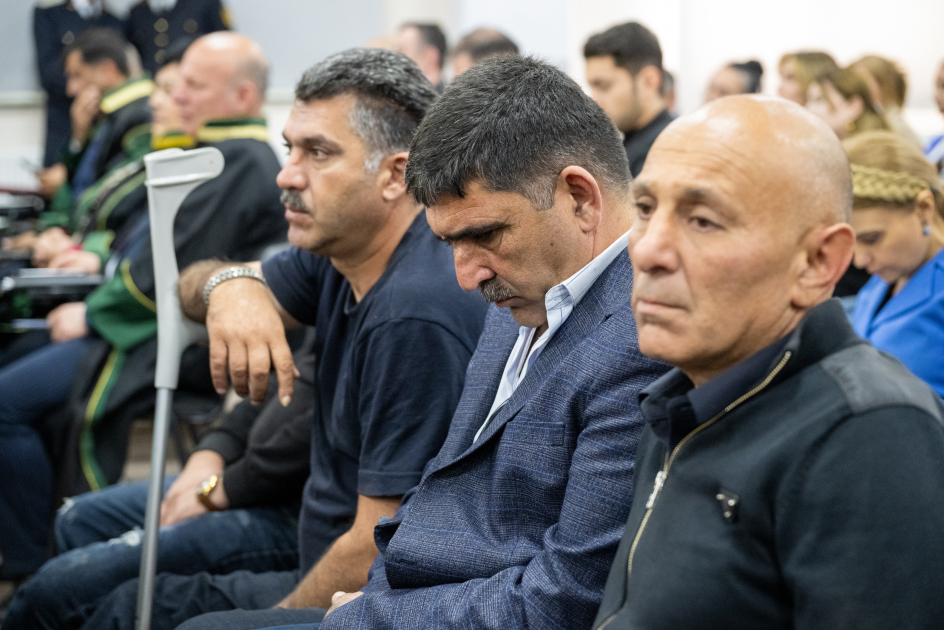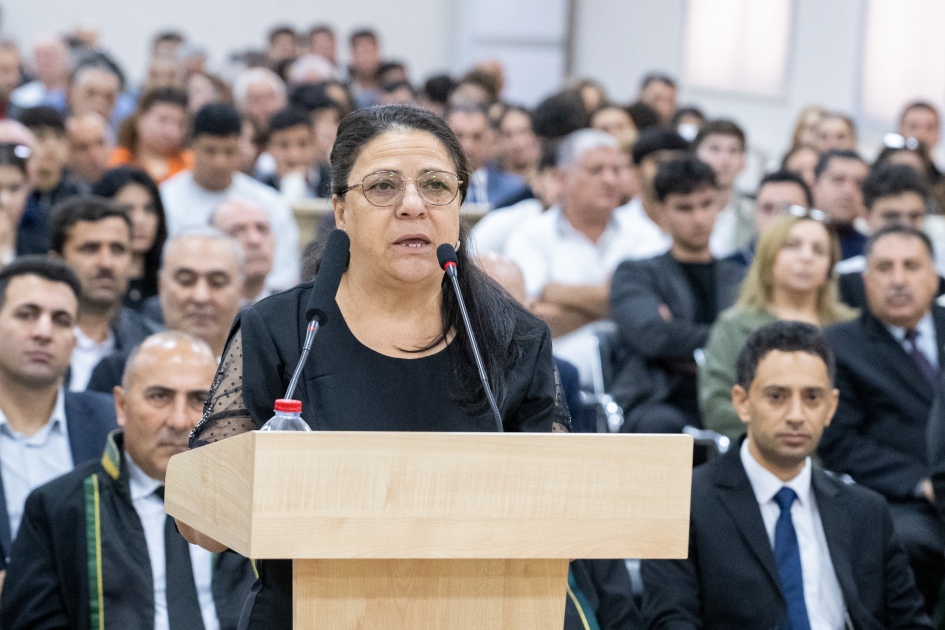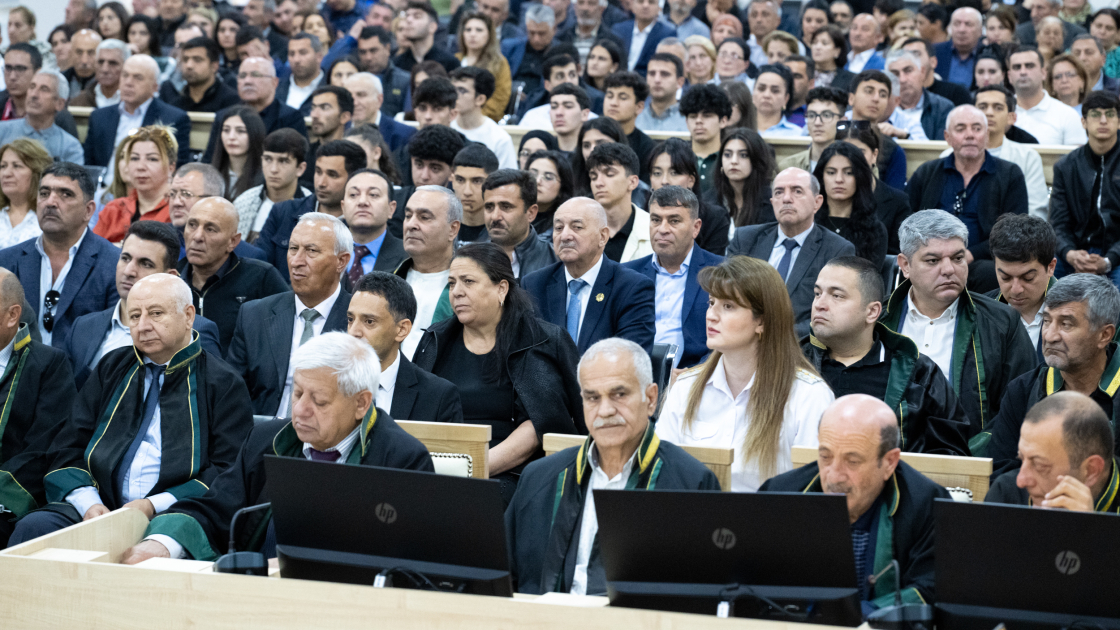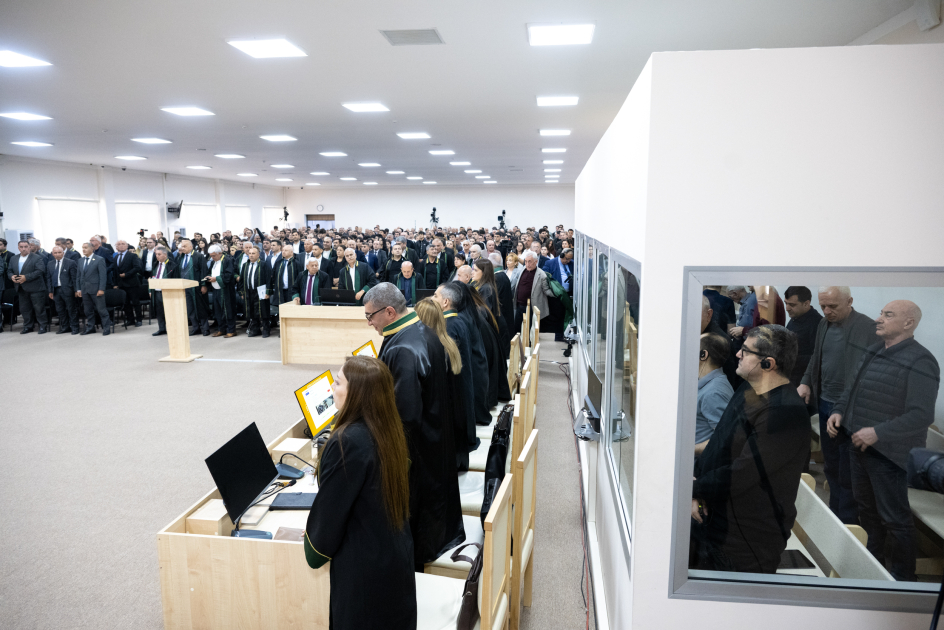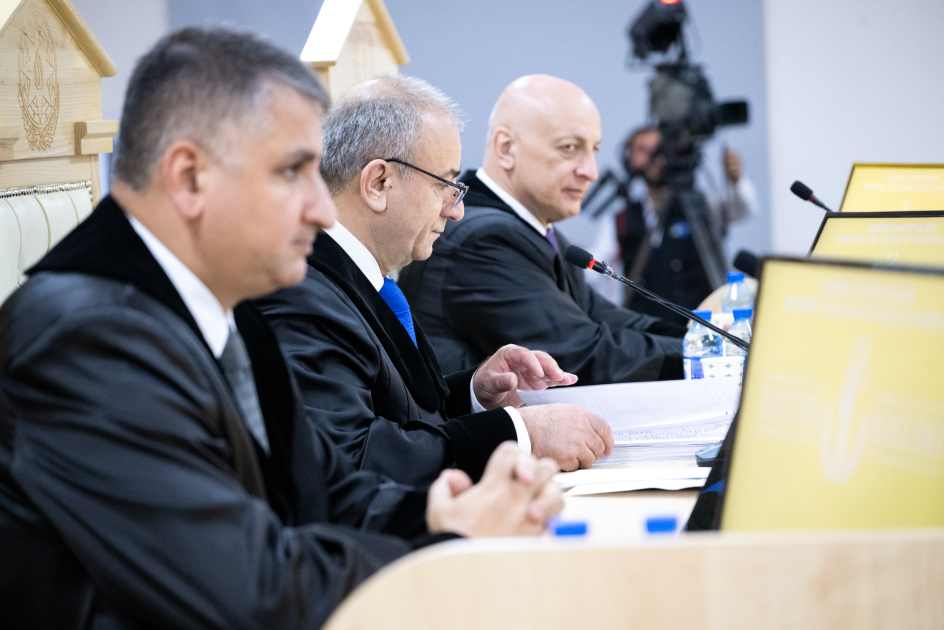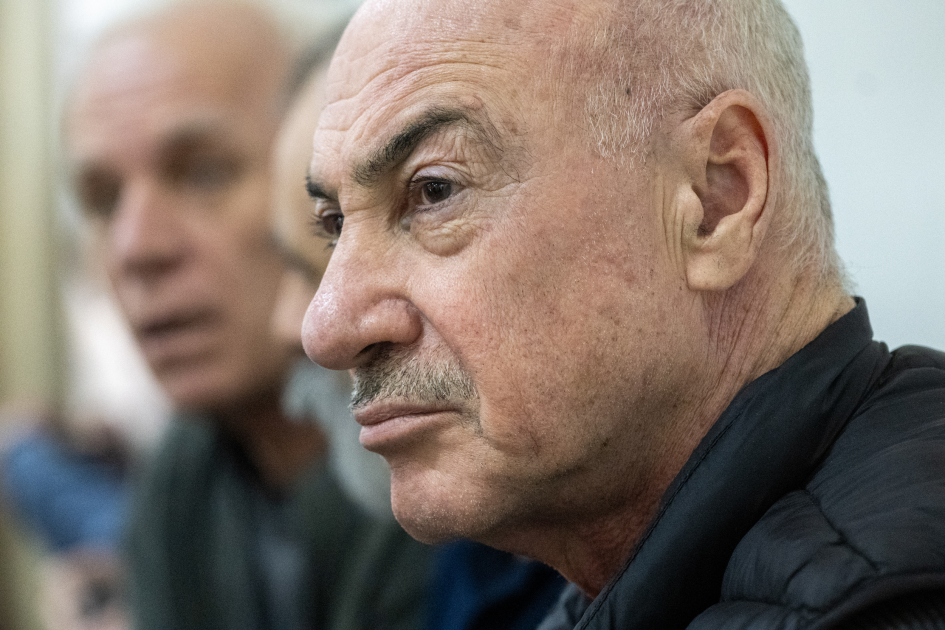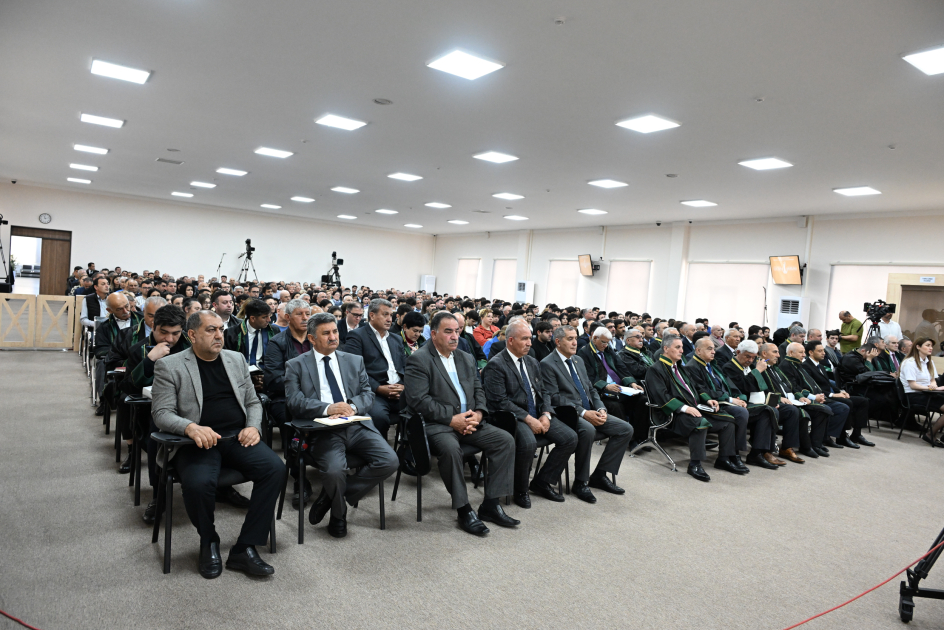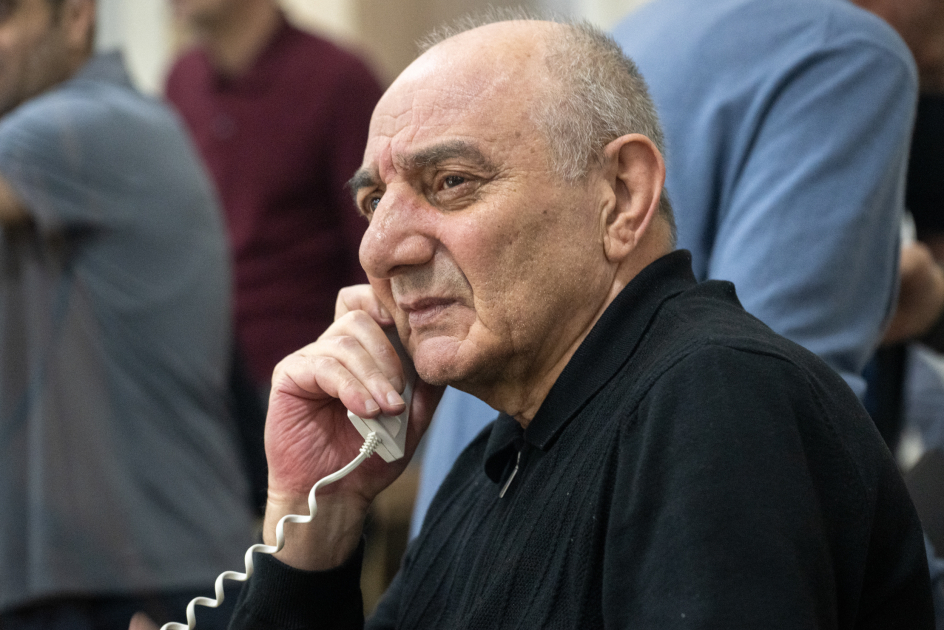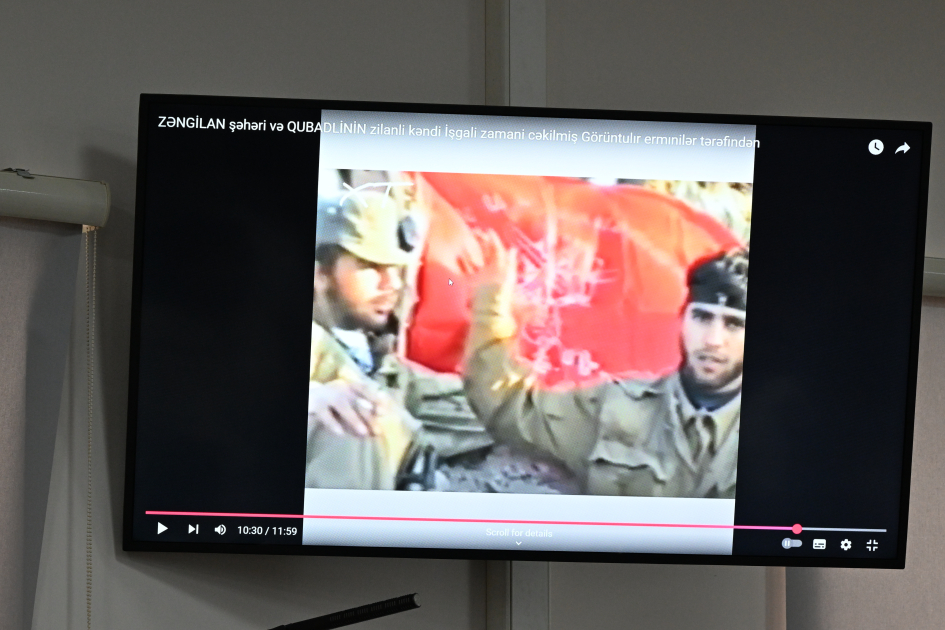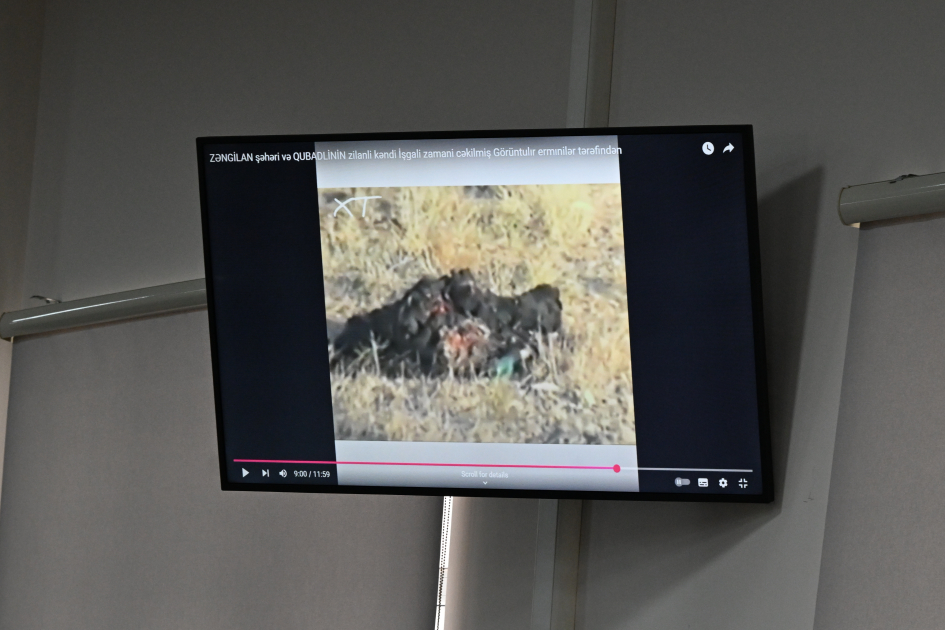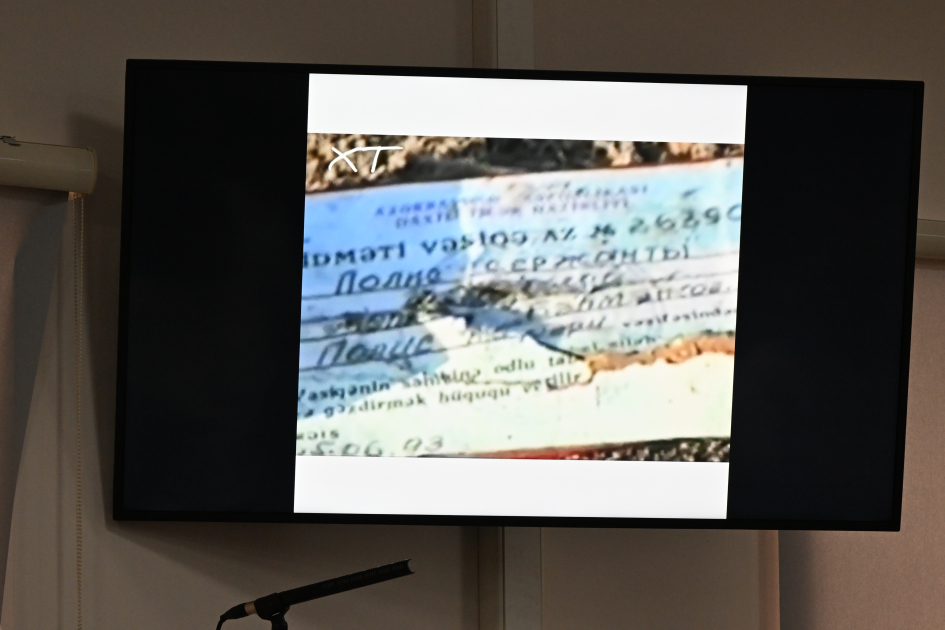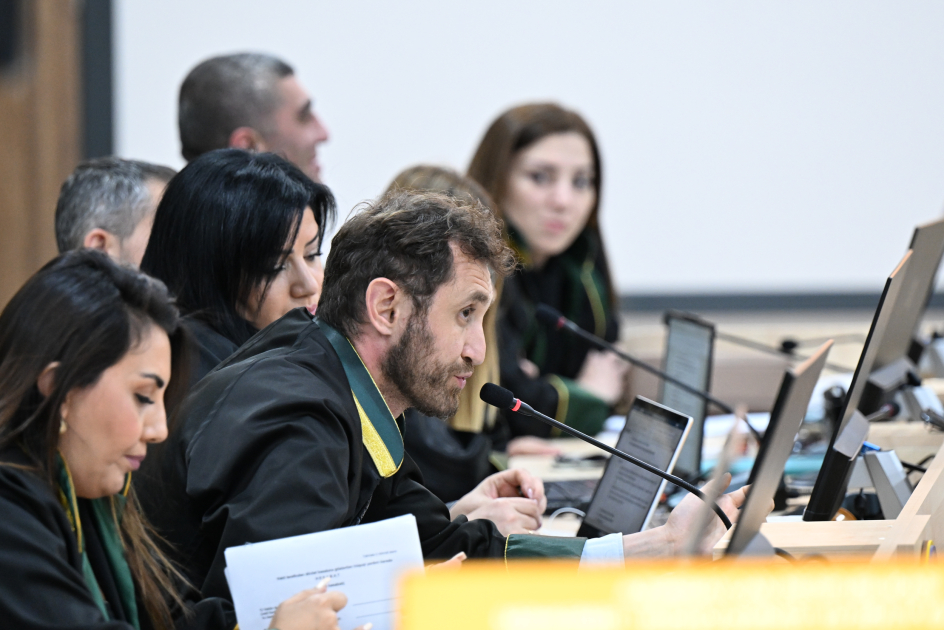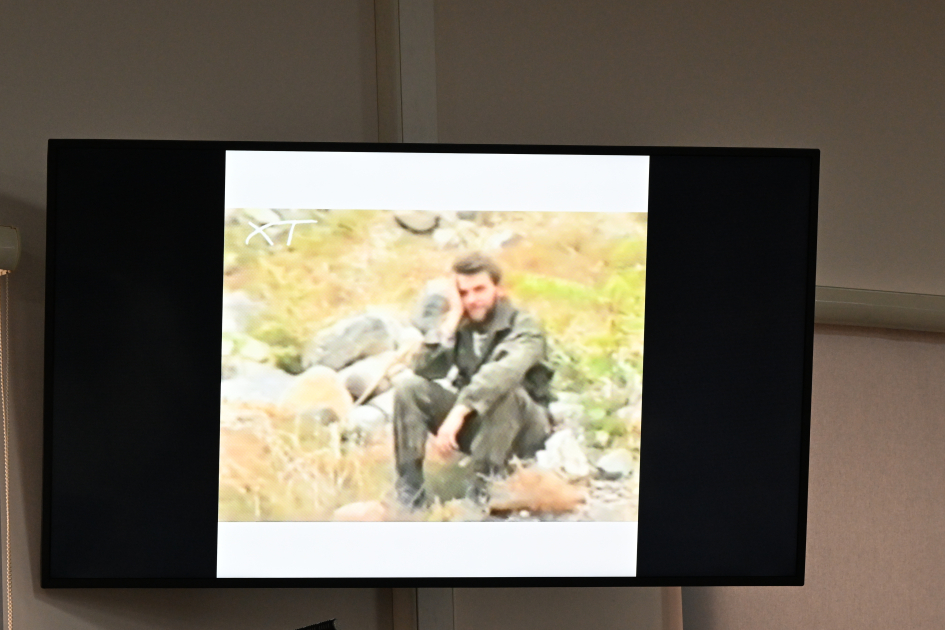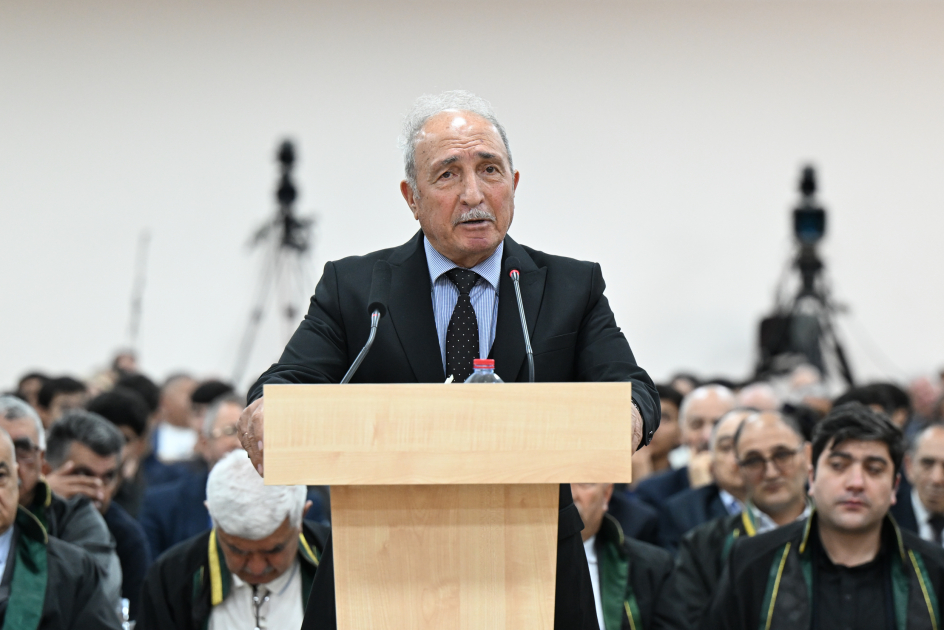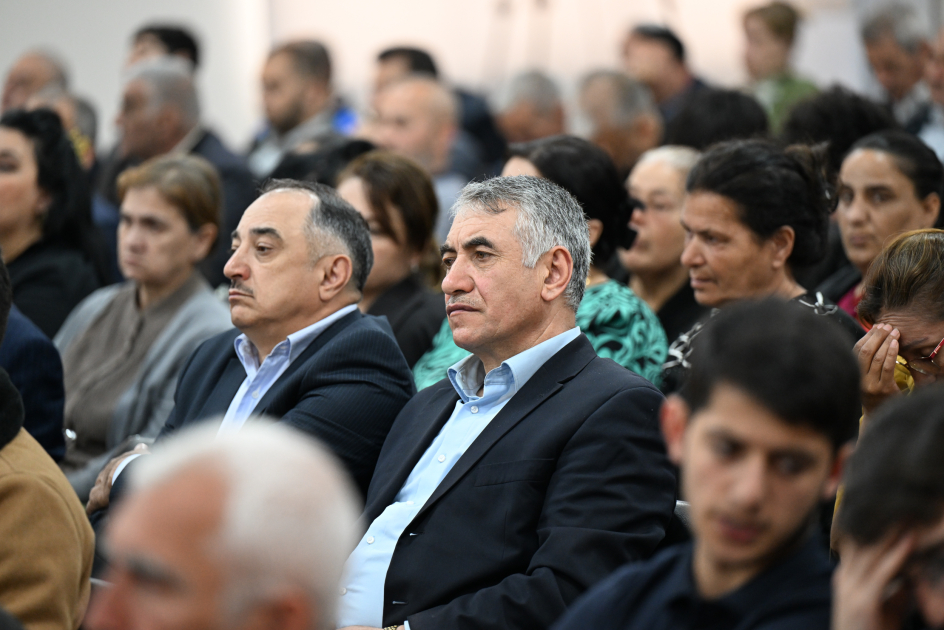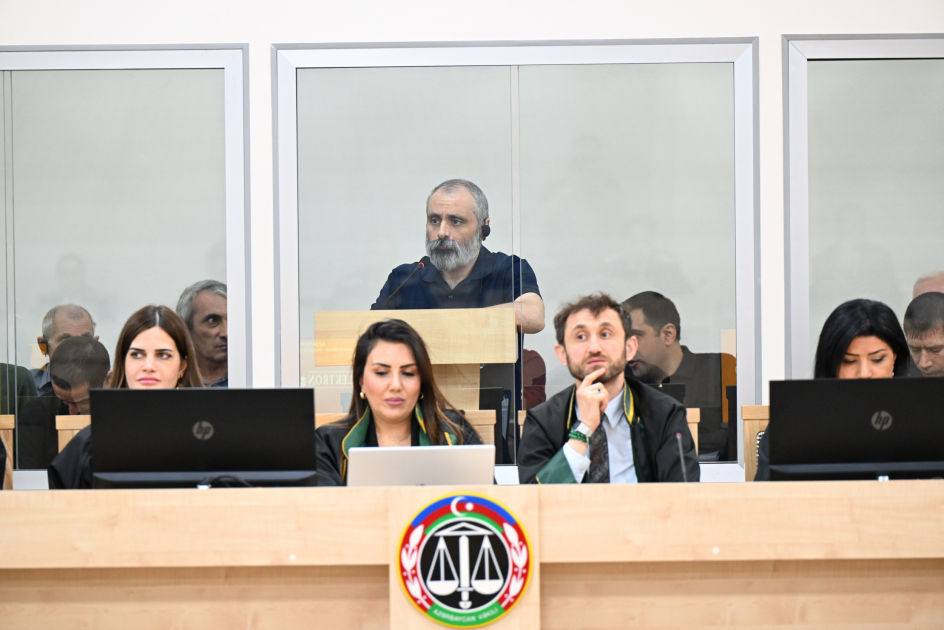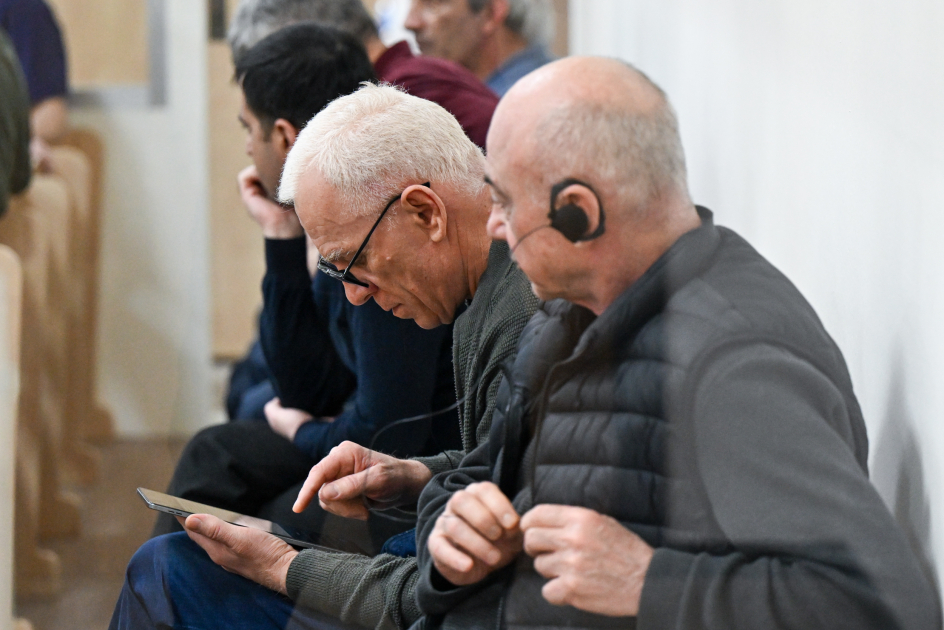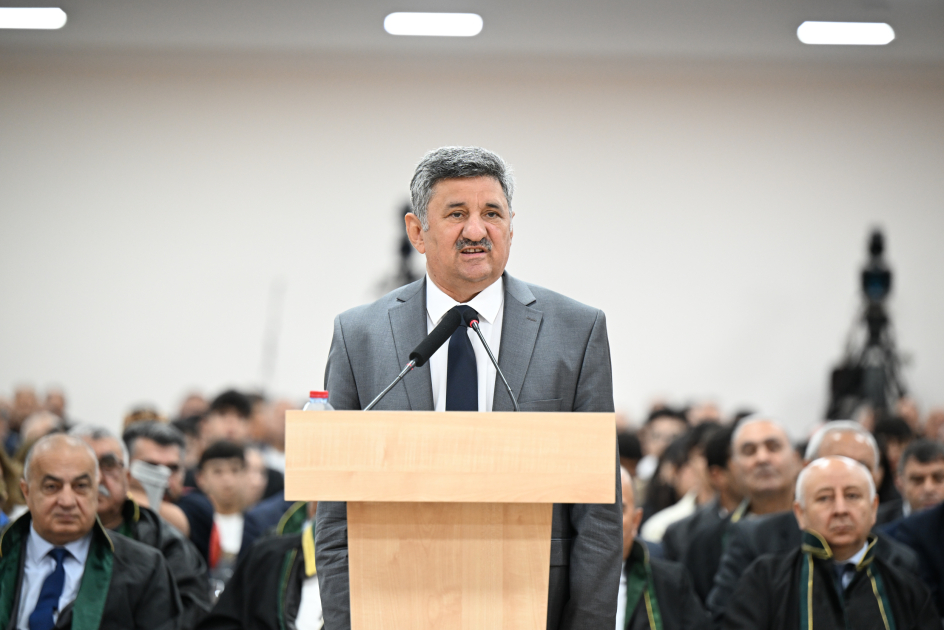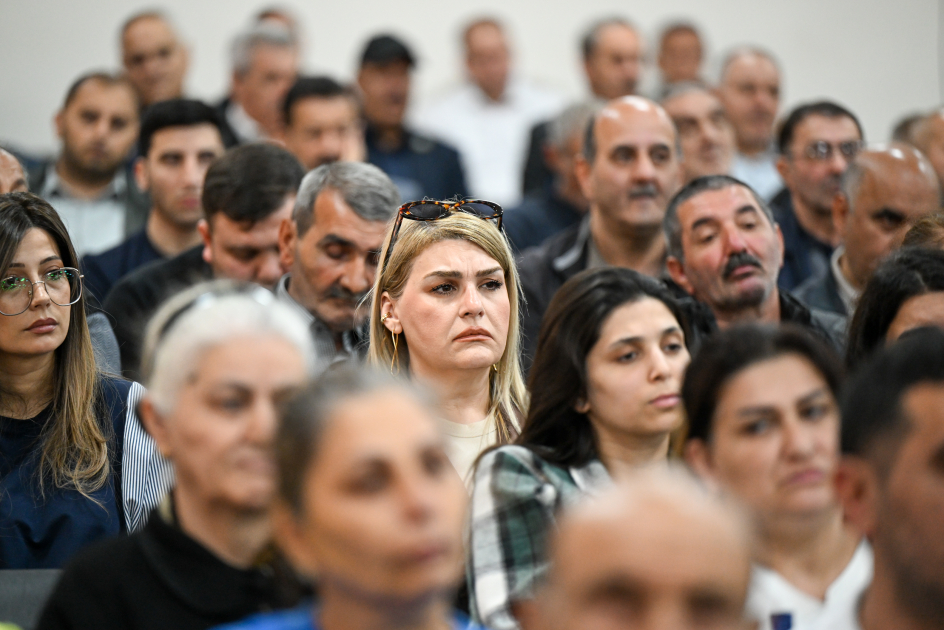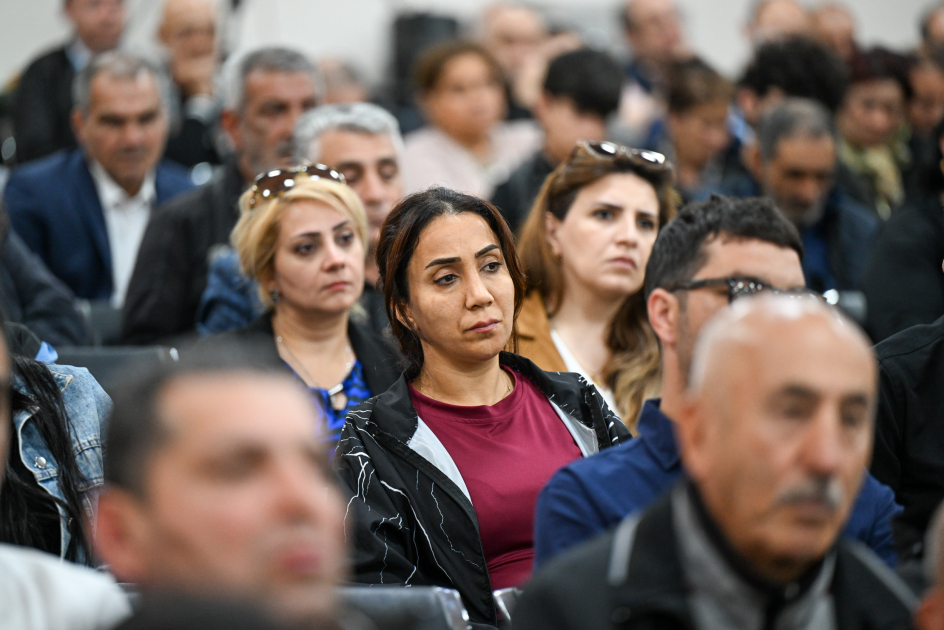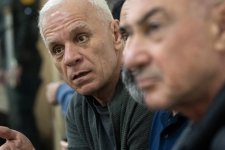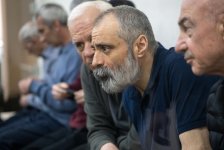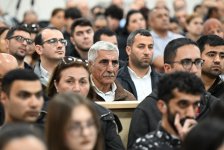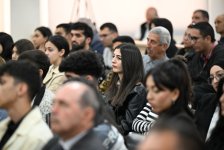BAKU, Azerbaijan, May 15. The open court session in the criminal case against Armenian citizens Arayik Harutyunyan, Arkadi Ghukasyan, Bako Sahakyan, Davit Ishkhanyan, David Babayan, Levon Mnatsakanyan, and others, who are accused of crimes against peace and humanity, war crimes, including preparing and waging aggressive war, genocide, violating the laws and customs of war, as well as terrorism, financing terrorism, forcibly seizing power, forcibly retaining it, and committing numerous other crimes as a result of Armenia's military aggression against Azerbaijan, continued on May 15, Trend reports.
At the Baku Military Court, under the chairmanship of Judge Zeynal Agayev, with judges Jamal Ramazanov and Anar Rzayev (alternate judge Gunel Samedova), each of the defendants was provided with an interpreter in their known language and with lawyers for their defense.
The session was attended by the defendants, their lawyers, some of the victims, their legal successors and representatives, as well as prosecutors defending the state prosecution.
Judge Zeynal Agayev introduced the court panel, interpreters, etc., to the victims who were attending the process for the first time, and explained their rights and responsibilities as provided for by law.
Then, David Babayan's lawyer addressed the court, requesting to be replaced due to ongoing medical treatment for an illness.
David Babayan stated that he had no objection to changing his lawyer.
Afterwards, the court continued with the questioning of the victims.
Victim Sujaat Madatov said that his wife was killed on May 16, 1992, as a result of the Armenian army's rocket fire on the city of Fuzuli.
In response to a question from state prosecutor Vusal Abdullayev, he stated that when the Armenian armed forces occupied the region, they surrounded it from four sides. Civilians were not even allowed to escape, and they were fired upon with various types of weapons, resulting in a large number of deaths.
Another victim, Agshin Aghazadeh, said that his father and brother lost their lives as a result of the Armenian army units firing a rocket at the Military Commissariat of the Fuzuli region from the Hadrut direction on March 16, 1992.
He said that when their village was occupied in 1993, his uncle, as well as 9 civilian residents of the village, were also killed. The victim emphasized that none of those killed were armed, but were civilians.
Victim Rey Gasimov said that the city of Aghdam had been fired upon by the Armenian army since the spring of 1992: "As a result of this fire, dozens of Aghdam residents were killed and injured. My 70-year-old aunt was also injured in that fire and later died."
The victim emphasized in his testimony that when they were forced to leave their homes in Aghdam, they were not allowed to take any of their belongings.
In response to a question from Nasir Bayramov, head of the Department for the Protection of State Prosecution of the Prosecutor General's Office, he stated that the Armenians' territorial claims to Aghdam began in 1988 after the rallies in Khankendi.
Another victim, Karim Novruzov, noted that the last large-scale attack by the Armenian army took place on March 12, 1992. "The Armenians attacked five villages in the Aghdara region, including our village of Bash Guneypaya. They surrounded the village and opened fire from tanks and heavy artillery. They had enough military forces, armed with automatic weapons, machine guns, and sniper rifles. My father died on March 12, 1992, while saving civilians from the massacre. In addition to my father, my brother, two uncles and other relatives and my childhood friend were killed at that time. It is currently unknown where their remains are," K. Novruzov added.
In response to a question from Vusal Aliyev, Senior Assistant to the Prosecutor General, he said that during that attack, his father Avaz Novruzov, his brother Ziya Novruzov, his uncles Isa Novruzov, Asaddin Novruzov and Shamsaddin Novruzov, his grandmother Sakina Novuzova and other villagers, a total of 17 Azerbaijani civilians, were killed.
Victim Bakhtiyar Alasgarov testified to the court that the Armenian armed forces attacked their village of Bash Guneypaya in Aghdara from four sides on March 12, 1992. At that time, he was 17 years old and was wounded in the leg and shoulder during the incident. Innocent people were shot and killed during the attack.
In response to a question from Tugay Rahimli, Assistant to the Prosecutor General for Special Assignments, B. Alasgarov said that during the incident, Armenian soldiers killed his grandfather Balay Garibov, his grandmother Saray Ismayilova, his mother Zabila Alasgarova, his sister Nargiz Alasgarova, and his aunt Ramila Alasgarova. The whereabouts of their bodies are still unknown.
Victim Elshad Aslanov emphasized that the Armenian army surrounded 5 villages of the Aghdara region on March 16, 1992. He stated that Armenian soldiers killed his father, uncles, and other civilians.
Victim Kenan Bayramov said that the Armenian armed forces attacked the Tartar region of Azerbaijan starting in 1992. In response to a question from state prosecutor Fuad Musayev, he stated that the brother of the accused Arayik Harutyunyan was also among those who participated in those attacks. Tartar suffered many martyrs during this war. Armenian army units fired on Tartar from the territories of Azerbaijan, which they occupied at that time. The victim said that he had serious health problems during the war. The victim's condition worsened while testifying in the process, so a medical examination was needed.
K. Bayramov pointed out that one of those who returned from captivity had acid poured on his head and did not live long.
Victim Vagif Maharramov noted that he suffered during the occupation of Jabrayil. He said that as a result of Armenia's occupation policy and aggressive war, many residents of the region were killed. The residents of the region were expelled from their native land, and their property was looted.
In response to a question from state prosecutor Tarana Mammadova, the victim said that the attack on Jabrayil began in 1990-1991. The Armenian side attacked the region with various types of weapons and heavy equipment. The residents were mainly attacked during the planting season. In response to a question from the accused Davit Ishkhanyan, the victim noted that he worked as the police chief in Jabrayil. There were also foreign mercenaries among those who attacked Jabrayil.
Another victim, Elkhan Mehdiyev, said that his brother was killed in Gubadli in 1992 as a result of the Armenian army's attack. He pointed out that Armenian soldiers fired at the region from the Armenian border. He said that his father was taken hostage earlier, and they received his body six months later.
Victim Osman Valiyev noted that what happened in Zangilan, although smaller in scale than the Khojaly tragedy, was terrible.
He said that 11 villages of the Zangilan region were occupied by the Armenian army in December 1992. Civilians were tortured during the occupation, and many people died.
"After Zangilan, Gubadli, Jabrayil and Arazqiragh areas were occupied in 1993, Zangilan region's connection with other areas of Azerbaijan was cut off," the victim emphasized.
Victim Sarkhan Musayev said that Tartar had been under artillery fire from the Armenian army since 1991: "As a result, there were deaths and injuries among civilians, and homes were damaged."
Victim Madad Humbataliyev, who testified in court, also said that he suffered during the occupation of Jabrayil. He noted that the attack on the region was carried out with various types of weapons, including heavy equipment. Armenia targeted Jabrayil from Hadrut, which it occupied at that time. He pointed out that the 15 people sitting in court today are not being judged because they are Armenian by nationality, but because they committed the most serious crimes against the Azerbaijani people. They oppressed the residents of the region while occupying Jabrayil. While they were occupying our territories, they destroyed our cemeteries, took corpses out of the graves and desecrated them.
During the victim's testimony in court, a video taken when the Armenian armed forces were occupying our regions was shown. Showing the footage, the victim said, "this is the territory of the Gubadli region. After Gubadli was occupied, the Armenian Army attacked Zangilan from that territory and burned their village. The soldiers burned the bodies of Azerbaijanis they killed in the village of Darzili. In the video footage, a fighter of the Armenian army talks about the height they took. He states that they will advance from there and go to Zangilan. He says that they are fulfilling the "will" of their grandfathers and achieving their goals. Then they perform the Dashnak song "Get up Dashnak Dro".
The video shows a flag with the inscription "Dashnaksutyun Party". In response to a question from the prosecutors defending the state prosecution, the victim said that Armenian soldiers poured gasoline on the bodies of Azerbaijanis and burned them. He said in his testimony that the Armenian army launched an attack on Zangilan from the village of Darzili on October 25, 1993, with tanks. 7 of our policemen died heroically there. He was seriously injured as a result of a tank shell falling near him and received seventeen shrapnel wounds. The victim said that the next footage was taken in the village of Zilanli in Gubadli. He said that the Armenian armed forces burned our villages, including Mammadbeyli, where he lived. The bodies of the seven policemen they killed have not been found yet. Their families are still waiting.
Ilyas Shamilov, who testified in court, also emphasized that he suffered as a result of Armenia's shelling of Tartar. He stated that Tartar was constantly under fire at that time.
Another victim, Anvar Gafarov, said that he suffered during the occupation of Jabrayil. He stated that when the Armenian army attacked Jabrayil, it targeted civilians. The residents were mainly attacked during the planting season.
Victim Aslan Shahbazov also spoke about the occupation of Gubadli, saying that attacks on the residents of the region had been carried out since 1988-1989. The region was fired upon with various types of weapons. He said that many of his relatives were martyred during this war.
Victim Azad Musayev noted that he suffered during the occupation of Zangilan, and Azer Eminov suffered during the occupation of Gubadli. In their statements, they pointed out that the accused committed crimes against humanity as a whole.
Alisafa Guliyev, who testified in court, also said that he suffered during the occupation of Zangilan, stating that Armenian soldiers oppressed civilians at that time, shot people, and beheaded them. The goal was to destroy the population.
During the court process, the victims gave testimony, and the accused also asked them questions.
The court process will continue on May 16.
The said persons, i.e. Arayik Vladimiri Harutyunyan, Arkadi Arshaviri Ghukasyan, Bako Sahaki Sahakyan, Davit Rubeni Ishkhanyan, David Azatini Manukyan, Davit Klimi Babayan, Levon Henrikovich Mnatsakanyan, Vasili Ivani Beglaryan, Erik Roberti Ghazaryan, Davit Nelsoni Allahverdiyan, Gurgen Homeri Stepanyan, Levon Romiki Balayan, Madat Arakelovich Babayan, Garik Grigori Martirosyan, Melikset Vladimiri Pashayan, are being charged under Articles 100 (planning, preparing, initiating and waging a war of aggression), 102 (attacking persons or organizations enjoying international protection), 103 (genocide), 105 (extermination of the population), 106 (enslaving), 107 (deportation or forced displacement of the population), 109 (persecution), 110 (enforced disappearance of people), 112 (deprivation of liberty contrary to international law), 113 (torture), 114 (mercenary service), 115 (violation of the laws and customs of warfare), 116 (violation of international humanitarian law during armed conflict), 118 (military robbery), 120 (intentional murder), 192 (illegal entrepreneurship), 214 (terrorism), 214-1 (financing terrorism), 218 (creation of a criminal association (organization)), 228 (illegal acquisition, transfer, sale, storage, transportation and possession of weapons, their components, ammunition, explosives and devices), 270-1 (acts threatening aviation security), 277 (assassination of a state official or public figure), 278 (forcible seizure and retention of power, forcible change of the constitutional structure of the state), 279 (creation of armed formations and groups not provided for by law) and other articles of the Criminal Code of the Republic of Azerbaijan.

